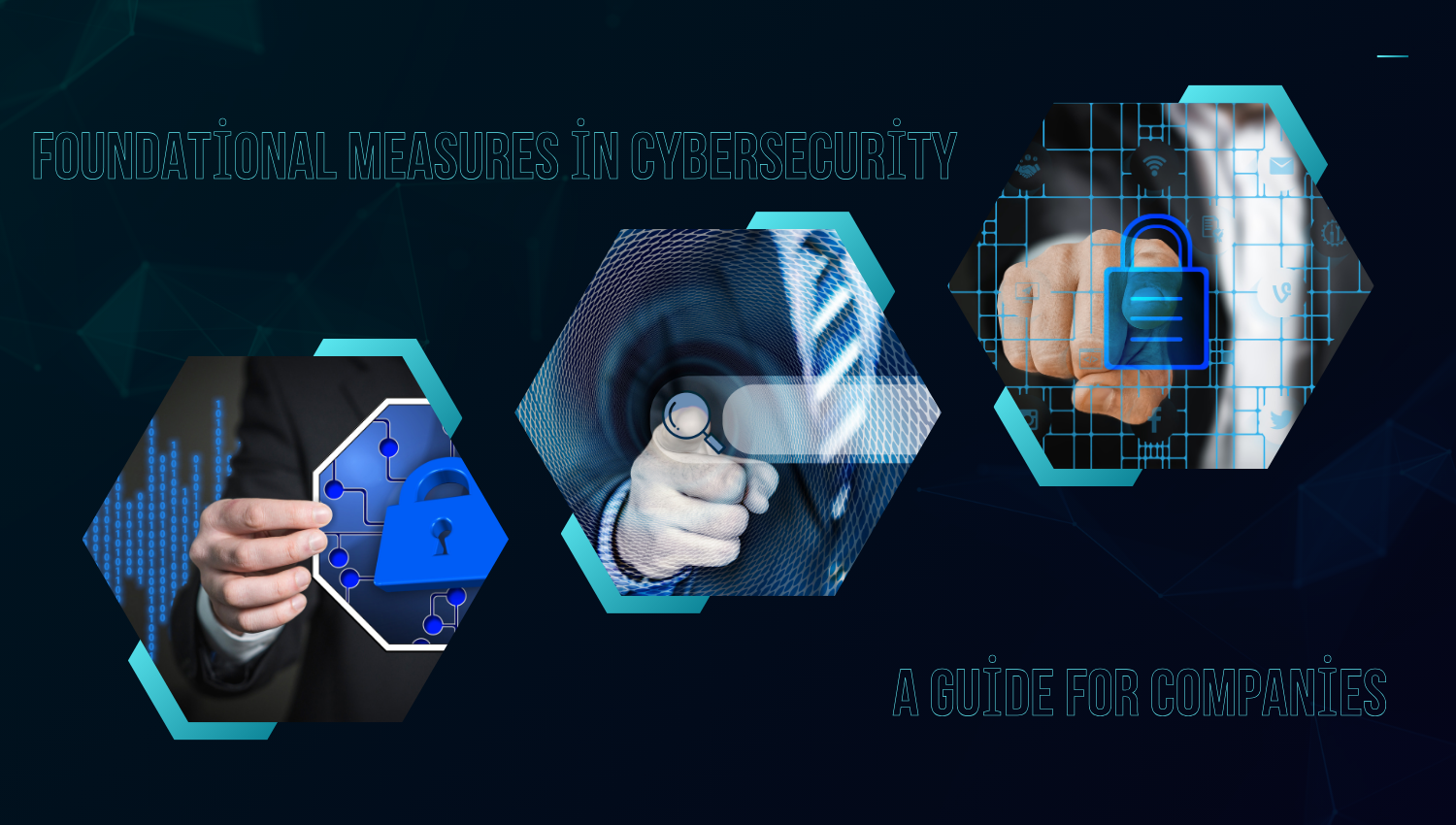Introduction
In today’s rapidly evolving digital landscape, cybersecurity threats are becoming increasingly complex and sophisticated. Factors such as increased internet access, cloud computing services, and mobile technologies further emphasize the need for companies to protect their data. While cybercriminal tactics continue to evolve, cyber attacks target not only large corporations but also small and medium-sized enterprises. In this context, it is crucial for companies to take effective measures to enhance cybersecurity.
In this article, we will discuss the fundamental steps that companies can take to ensure cybersecurity. These steps are essential for strengthening cybersecurity strategies and becoming more resilient against potential threats. Let’s delve into the foundational measures in cybersecurity to embark on the journey of safeguarding digital assets for companies.
Learning Objectives
After reading this article, readers will be knowledgeable about the following topics:
- Increasing cybersecurity awareness through education and training.
- Understanding the importance of data backup and recovery measures.
- The role of security software and updates.
- Establishing and implementing cybersecurity policies and procedures
Awareness and Training
Companies should educate and train their employees on cybersecurity matters to raise awareness and instill a culture of security. These training programs are crucial for teaching employees to recognize and prevent attacks such as phishing. Awareness programs enable employees to understand security risks and implement security principles in their daily workflows. Additionally, learning to be cautious of social engineering attacks and avoiding suspicious links are essential components of these training sessions. Regularly conducted security awareness campaigns continually enhance employees’ knowledge of security matters and strengthen the company’s cybersecurity posture.
Book recommendation from our edito
Only the Paranoid Survive: How to Exploit the Crisis Points That Challenge Every Company Paperback – March 16, 1999
$9.95 on AmazonData Backup and Recovery
Data backup and recovery assist companies in minimizing data loss following a cyber attack. Regular data backups should be performed, and these backups should be securely stored. For example, establishing daily, weekly, and monthly backup routines and automating them is recommended. Furthermore, storing backups in secure cloud storage services rather than physical environments is advised. This ensures access to data even in unexpected situations such as cyber attacks or natural disasters. Backup plans should be regularly tested and updated to be prepared for emergencies and minimize data loss.
Security Software and Updates
Companies should utilize security software and regularly update them. Tools such as firewalls, antivirus programs, and malware protection play a critical role in safeguarding company networks. For instance, some trusted antivirus programs include (Ransomware: The Anatomy of Digital Threats):
- McAfee: McAfee provides reliable antivirus protection across various platforms.($19.99 on amazon)
- Norton: Norton offers a user-friendly interface and effective virus protection features.($34.99 on amazon)
- Kaspersky: Kaspersky is known for its advanced threat detection capabilities and highly effective virus protection.
- Bitdefender: Bitdefender offers advanced malware detection and blocking features with a lightweight and user-friendly interface($52.86 on amazon).
- Trend Micro: Trend Micro provides enterprise-grade security solutions and is suitable for various platforms($39.90 on amazon).
Regularly updating security software and enabling automatic updates is essential. This ensures that software is up-to-date with the latest threats and enhances the security of company networks.
Cybersecurity Policies and Procedures
Cybersecurity policies and procedures form the foundation of companies’ cybersecurity strategies. These policies and procedures ensure that employees are aware of cybersecurity issues and help mitigate potential risks. These policies typically include:
- Password policies and access controls: Measures such as using strong passwords, regular password changes, and limited access rights(Password Security With Machine learning).
- Data privacy and protection: Measures to protect sensitive data and guidelines for data sharing.
- Network security: Measures such as monitoring network traffic, network segmentation, and firewalls.
- Device management: Policies for securing both internal and external devices such as mobile and personal devices.
- Incident and security management: Processes such as monitoring logs, managing security events, and creating emergency plans.
Effectively communicating and implementing these policies and procedures within the company enhances cybersecurity and strengthens the organization’s defense. Additionally, they need to be continually updated and revised as threats and technologies evolve.
Conclusion
Cybersecurity is a critical concern in today’s business world. By implementing foundational measures such as awareness training, data backup, security software usage, and policy establishment, companies can enhance their resilience against cyber threats. However, as cybersecurity threats continue to evolve, it is essential for companies to regularly review and update their security measures.
The foundational measures discussed in this article can assist companies in strengthening their cybersecurity strategies and becoming more resilient to potential threats. For more join our discord server


